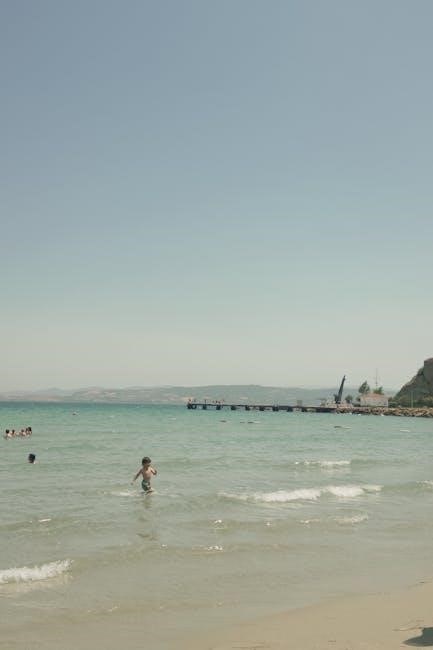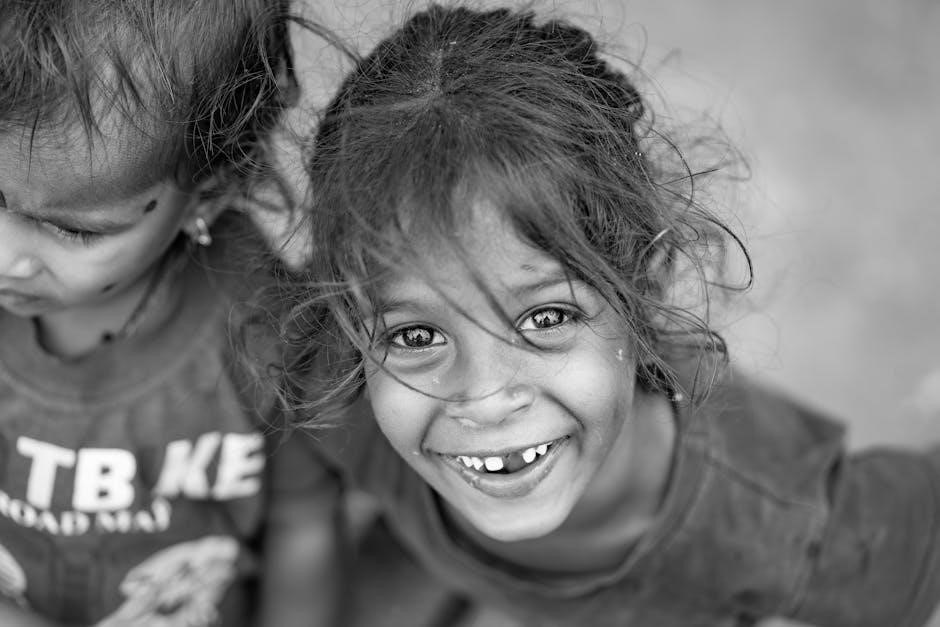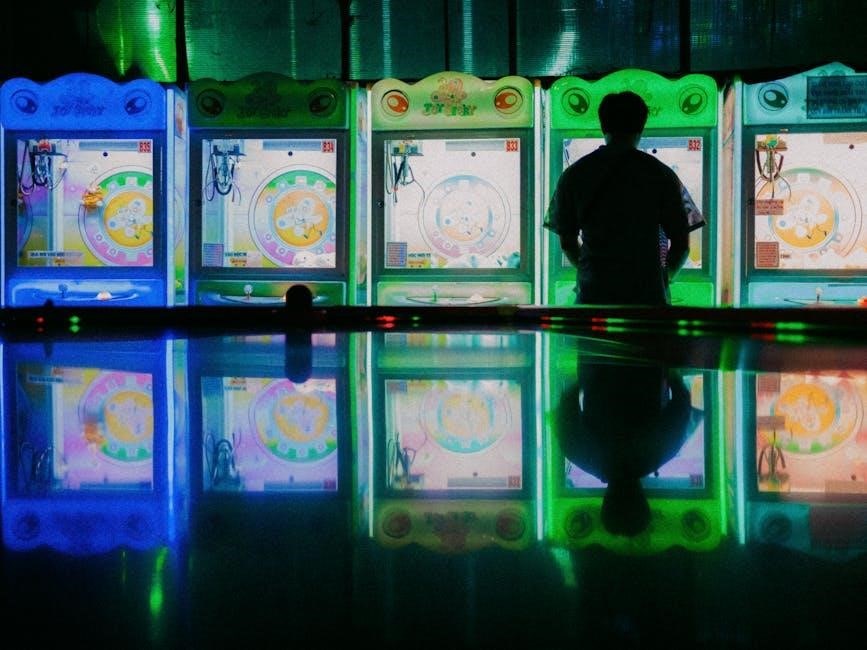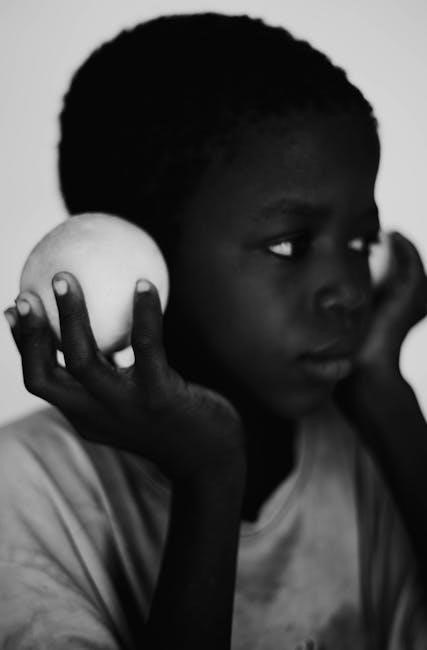Background of the Play
Written by Yasmina Reza in 2008, God of Carnage is a dark comedy exploring societal expectations and primal instincts through a tense meeting of two couples.
Publication Details
God of Carnage was written by Yasmina Reza and first published in 2008. The play, originally in French, was translated into English by Christopher Hampton. It is a one-act comedy that explores the unraveling of civility among two couples. Published by Faber and Faber in London, the play consists of 67 pages and is widely available in various formats, including PDF, ePub, and hardcopy. The script has been distributed globally, with free PDF versions accessible online, making it a popular choice for theatrical studies and performances. Its publication coincided with its premiere, leading to critical acclaim and numerous adaptations, including a film directed by Roman Polanski in 2011. The play’s concise structure and sharp dialogue have made it a staple in modern theatre, ensuring its enduring relevance and accessibility.
Author’s Inspiration and Influences
Yasmina Reza drew inspiration for God of Carnage from her observations of societal norms and human behavior. Her background as an actor and playwright influenced her sharp, observational style. The play’s dark humor and exploration of primal instincts reflect her interest in the duality of human nature. Reza’s work often critiques bourgeois culture, as seen in her earlier play Art. The idea for God of Carnage emerged from her fascination with how civilized individuals can quickly revert to primal behavior when faced with conflict. This theme was further shaped by her experiences growing up in Paris and her insights into suburban dynamics. Reza’s unique voice and ability to blend comedy with psychological depth have made her one of the most celebrated playwrights of her generation.

Plot Overview
The play revolves around a tense meeting between two couples, the Novaks and the Raleighs, discussing a fight between their sons. Civility quickly crumbles, revealing primal instincts.
Main Storyline
The Novaks and Raleighs gather to discuss their sons’ playground altercation. Initially polite, the conversation escalates, exposing their true selves. The meeting descends into chaos, revealing primal instincts and societal facade.

Character Dynamics
The characters’ interactions reveal shifting alliances and underlying tensions. Veronica’s passive-aggressive nature contrasts with Michael’s practicality, while Annette’s politeness hides her frustration. Alan’s detachment highlights the group’s dysfunction, unraveling civility and exposing raw emotions.
Key Conflicts
The play revolves around a confrontation between two couples regarding their children’s altercation. Tensions escalate as their civilized facade crumbles, revealing personal grievances and societal expectations. Their inability to resolve conflicts peacefully exposes primal instincts, leading to chaos and emotional turmoil.

Characters and Analysis
The play features four main characters: Alan, Annette, Michael, and Veronica, all in their forties. Their interactions reveal raw emotions, societal masks, and primal instincts beneath polite facades.
Main Characters
The play revolves around four complex characters: Alan Raleigh, Annette Raleigh, Michael Novak, and Veronica Novak. All in their forties, they represent modern societal dynamics. Alan, a lawyer, is defensive and rational, while Annette, a real estate agent, appears composed but hides tension. Michael, a wholesaler, is practical yet volatile, and Veronica, a writer, is intellectual but emotionally charged. Their sons’ altercation sparks a meeting that exposes their true selves. As civility crumbles, their primal instincts and underlying conflicts surface, revealing the savagery beneath their polished facades. The characters’ interactions drive the play’s dark humor and psychological depth, making them relatable yet flawed figures in Reza’s exploration of human nature.

Psychological Depth
God of Carnage delves into the psychological complexities of its characters, exposing their inner conflicts and primal instincts. The play strips away societal masks, revealing raw emotions and underlying tensions; Each character’s behavior reflects their psychological struggles, such as Alan’s defensive rationality, Annette’s suppressed frustration, Michael’s volcanic temper, and Veronica’s intellectual hypocrisy. Their interactions create a tense atmosphere, highlighting the fragility of civilized behavior. Reza’s sharp dialogue and character dynamics critique modern societal norms, showing how easily individuals revert to primal behavior when pressured; The psychological depth lies in the characters’ gradual regression from polite discourse to chaotic confrontation, mirroring the duality of human nature—civilized versus savage. This exploration makes the play a compelling study of psychological tension and societal expectations.

Themes Explored
The play critiques societal norms, exploring the breakdown of civility and the emergence of primal instincts, revealing the inherent duality of human nature and behavior.
Savagery vs. Civilization
God of Carnage starkly contrasts civilized behavior with primal instincts, exposing how quickly societal norms crumble under stress. The play portrays two couples meeting to discuss their children’s altercation, initially maintaining polite decorum. However, as tensions rise, their civilized facade disintegrates, revealing raw emotions, hostility, and selfishness. This transformation underscores the thin line between refinement and savagery, highlighting how easily humans revert to primal behavior when faced with conflict. Reza’s sharp dialogue and dark humor amplify this contrast, critiquing the hypocrisy of modern society. The play suggests that beneath the surface of etiquette and morality lies a primal nature, ready to emerge when societal expectations are challenged. This exploration of human duality is central to the play’s themes, offering a biting commentary on the fragility of civilization.
Social Hypocrisy
God of Carnage masterfully exposes the hypocrisy inherent in social interactions, particularly among the upper class. The play reveals how characters outwardly project politeness and moral superiority while harboring selfish, manipulative, and cruel intentions. Through sharp dialogue and character dynamics, Yasmina Reza critiques the pretense of civility, showing how individuals prioritize self-interest over genuine concern for others. The couples’ inability to resolve their children’s conflict honestly underscores the superficiality of their social norms. Reza’s portrayal of these characters lays bare the disconnect between their public personas and private truths, offering a scathing critique of societal pretenses. This exploration of hypocrisy highlights the tension between appearance and reality, making it a central theme of the play.
Theatrical Style
God of Carnage features a minimalist, one-act structure with sharp, biting dialogue, creating a tense atmosphere. The sparse, symbolic setting amplifies the characters’ raw emotions and societal critique.
Language and Dialogue

God of Carnage features sharp, biting dialogue that exposes the primal instincts beneath civilized facades. Yasmina Reza’s script is direct and incisive, with no room for sentimentality. The conversations are laced with underlying tension, revealing the characters’ true selves as civility crumbles. The minimalist setting enhances the raw, unfiltered exchanges, creating a visceral impact. Reza’s language strips away societal pretenses, showcasing how quickly adult decorum can devolve into childish hostility. The dialogue’s precision and rhythm amplify the emotional intensity, making the play a masterclass in psychological warfare. Christopher Hampton’s translation retains the original French version’s biting wit and nuance, ensuring the play’s universal appeal. Through these exchanges, Reza crafts a compelling exploration of human behavior, where words become weapons in a battle of egos and moral superiority.
Stage Directions
The play is set in a minimalist living room with no realism, emphasizing essential elements like a coffee table and tulips. The couples face each other, creating immediate tension. Directions highlight the contrast between the orderly setting and the characters’ deteriorating behavior, with subtle changes in props reflecting emotional shifts. The minimalist approach focuses attention on dialogue and interactions, avoiding distractions. The setting underscores themes of civility versus savagery, with careful use of space and props to enhance the escalating conflict. The absence of realism ensures focus on raw emotions, while specific details like the tulips symbolize the breakdown of composure. The stage directions effectively use the environment to mirror the characters’ dynamics and heighten emotional impact.
Performance History
Debuting in 2008, God of Carnage won the 2009 Tony Award for Best Play. Adapted into the film Carnage by Roman Polanski in 2011, it remains widely performed globally.
Original Production
The original production of God of Carnage premiered in 2008 at the Gielgud Theatre in London’s West End, directed by Matthew Warchus. The play was an instant success, captivating audiences with its sharp dialogue and biting humor. The cast featured renowned actors such as Ralph Fiennes and Tamsin Greig, whose performances were widely praised. The production’s minimalist set design, emphasizing a sleek, modern aesthetic, perfectly complemented the play’s themes of suburban superficiality and underlying savagery. The original run was extended multiple times due to high demand, solidifying the play’s reputation as a contemporary theatrical masterpiece. The production’s success laid the groundwork for its eventual transfer to Broadway and numerous international adaptations.
Notable Adaptations
God of Carnage was adapted into a film titled Carnage in 2011, directed by Roman Polanski. The movie starred Jodie Foster, Kate Winslet, Christoph Waltz, and John C. Reilly, maintaining the play’s dark humor and intensity. The adaptation stayed true to the original script while translating the claustrophobic atmosphere of the stage to the screen. The film received critical acclaim and was nominated for a Golden Globe, further cementing the play’s legacy. Additionally, the play has been translated into multiple languages and staged in numerous countries, showcasing its universal appeal. Its adaptability has made it a favorite for both theatrical and cinematic interpretations, continuing to resonate with global audiences.
Reception and Awards

God of Carnage received widespread critical acclaim and numerous awards. It won the 2009 Tony Award for Best Play and the Laurence Olivier Award for Best New Play, solidifying its reputation as a modern theatrical masterpiece. Critics praised its sharp dialogue and nuanced exploration of human behavior. The play’s ability to balance humor with darker themes resonated with audiences and reviewers alike. In 2011, it was adapted into a film, further expanding its reach. The play’s success has been recognized globally, with translations and productions in multiple languages. Its impact on contemporary theatre is undeniable, as it continues to spark discussions about societal norms and interpersonal dynamics. The play’s awards and accolades reflect its enduring relevance and artistic brilliance.
Downloads and Accessibility
God of Carnage is widely available as a free PDF download from sources like the Internet Archive and other online platforms, ensuring easy access for readers worldwide.
Official PDF Sources
Official PDF versions of God of Carnage are available through reputable sources like the Internet Archive and bookey.app. These platforms offer the play in its original form, translated by Christopher Hampton. Published by Faber and Faber in 2008, the PDF retains the play’s sharp dialogue and structure. The Internet Archive provides free access to the script, ensuring widespread availability. Additionally, the bookey.app version includes thematic analyses, enhancing reader understanding; These sources are reliable and maintain the integrity of Reza’s work, making them ideal for both academic and casual readers. The PDF format allows for easy reading on various devices, preserving the play’s intent and theatrical style.
Free Download Options
Free PDF downloads of God of Carnage are accessible through platforms like Internet Archive and Scribd. These sites provide the complete script, enabling readers to explore Reza’s biting dialogue and character dynamics. The play’s exploration of societal norms and primal instincts is preserved in these versions, making them ideal for educational purposes. While official sources offer paid options, free downloads remain a popular choice for accessibility. Users can download the PDF or read it online, ensuring flexibility. These free resources have contributed to the play’s widespread study and appreciation, maintaining its relevance in contemporary theater discussions.

Critical Reception

God of Carnage received widespread critical acclaim for its sharp dialogue and dark humor, earning the 2009 Tony Award for Best Play. Critics praised its biting commentary on societal norms and primal instincts, with many hailing it as a masterclass in character-driven drama. The play’s ability to balance comedy with profound insight solidified its place as a modern theatrical masterpiece.
Initial Reviews
Upon its release, God of Carnage garnered immediate critical acclaim. Critics lauded Yasmina Reza’s sharp and biting dialogue, highlighting the play’s ability to strip away societal facades and expose raw human emotions. The dark humor and claustrophobic setting were praised for creating a tense atmosphere, while the character dynamics were described as both relatable and unsettling. Reviewers noted how the play masterfully balanced comedy with profound insights into human nature, making it a standout production in contemporary theater. The initial reception set the tone for its eventual success, including its Tony Award win, solidifying its reputation as a modern theatrical masterpiece.
Comparisons with Other Works
God of Carnage is often compared to Reza’s earlier work, Art, for its biting wit and examination of human relationships. Like Art, it strips away social niceties, revealing raw emotions and primal instincts. The play’s claustrophobic setting and real-time dialogue evoke comparisons to Harold Pinter’s works, particularly in its tension-filled atmosphere. Additionally, its exploration of suburban hypocrisy aligns it with the works of Edward Albee, especially Who’s Afraid of Virginia Woolf?. The play’s ability to blend comedy with darker undertones has also drawn parallels to the works of Neil Simon, though with a more cynical edge. These comparisons highlight Reza’s unique voice while situating her within a broader theatrical tradition of exploring human frailty through sharp dialogue and intense character dynamics.
Cultural Impact
God of Carnage has left a lasting mark on theater and popular culture, inspiring adaptations like Roman Polanski’s film Carnage and sparking discussions on human behavior.
Influence on Popular Culture
God of Carnage has significantly influenced popular culture, inspiring adaptations like Roman Polanski’s 2011 film Carnage, starring Jodie Foster and Kate Winslet. Its sharp dialogue and exploration of human behavior have resonated in media, with references in TV shows and discussions about societal norms. The play’s themes of civility vs. savagery are often cited in analyses of modern interactions, making it a cultural touchstone. Its success has also spurred debates about parenting, marriage, and social hypocrisy, cementing its place in contemporary discourse. The play’s ability to transcend theater and impact broader cultural conversations underscores its enduring relevance.
Educational Use
God of Carnage is widely used in educational settings to teach drama, literature, and social studies. Its concise structure and complex themes make it an ideal text for analyzing character dynamics, dialogue, and societal norms. Students explore how Reza uses humor and tension to critique modern parenting and relationships. The play’s focus on primal instincts and civility encourages discussions about human behavior and ethics. Many schools incorporate it into curriculum to develop critical thinking and empathy. Its accessibility and relevance make it a popular choice for both teaching and student performances, fostering deeper understanding of theatrical techniques and contemporary social issues.
Relevance in Contemporary Society
God of Carnage remains highly relevant today, offering a sharp commentary on modern societal norms. The play’s exploration of civility versus savagery resonates with contemporary issues like social media conflicts, parenting challenges, and the breakdown of polite discourse. Its portrayal of affluent families struggling with primal instincts mirrors current debates about class, privilege, and human behavior. The themes of hypocrisy and the facade of politeness are timeless, making the play a powerful tool for reflecting on today’s societal ills. Reza’s work continues to spark discussions about how individuals navigate conflict and maintain appearances, ensuring its enduring impact and relevance in modern culture.
God of Carnage is a powerful critique of societal norms, exposing the thin line between civilization and primal instincts. Its timeless themes ensure enduring relevance in contemporary discourse.
God of Carnage by Yasmina Reza stands as a pivotal work in modern theater, celebrated for its biting critique of societal norms and human behavior. The play masterfully strips away the facade of civility, revealing the raw emotions and primal instincts that lie beneath. Its exploration of themes such as savagery versus civilization and social hypocrisy resonates deeply, offering a mirror to contemporary society. The play’s compact structure, focusing on a single encounter between two couples, amplifies its intensity and impact. Translated by Christopher Hampton, it has garnered international acclaim, including a Tony Award for Best Play in 2009. God of Carnage not only challenges audiences to reflect on their own moralities but also solidifies Reza’s reputation as a sharp and incisive playwright. Its influence extends beyond the stage, with adaptations further cementing its cultural significance.
